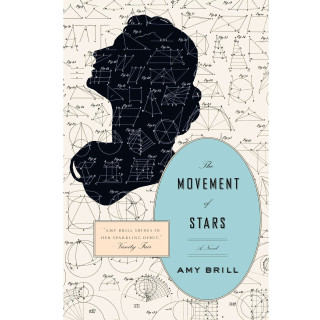8 Things You Should Never Say to a Narcissist
You know her: the one who can't seem to think about anything or anyone except herself. Here's how to avoid exhausting yourself.

Photo: CSA Images/Getty Images
1. Don't say, "It's not about you."
Oh, but it is. Everything is. Every job promotion, baby bump and friend's new romance is a fresh chance to refocus on the only perspective she can connect to: her own. She might not realize she's doing it, but pointing it out will only make her more defensive.
2. Don't say, "You're not listening."
It's not that a narcissist won't listen to the woeful tale of how you injured your knee while jogging—it's that she can't. Stopping to listen would mean acknowledging the deep-seated insecurity at the root of all her problems: that she isn't worth listening to. Instead of explaining, take a different tack. "Can I tell you how my surgery went?" goes over far better than "I cannot believe you haven't even asked about my surgery!" Chances are you won't get more than a few words in...but baby steps.
3. Don't say, "Ina Garten did not get her lasagna recipe from you."
For truth lovers, this is a tough one. But a narcissist sustains herself with boastful, outsized claims that make her feel important—friendships with celebrities! awards!—even when those claims are some version of lie. Correcting her only reinforces her low self-esteem and her fear that everyone will find out what she already believes: that she's not good enough.
4. Don't say, "Do you think it might be your fault?"
Nothing is ever her fault. Lost job, broken relationship, financial ruin—whatever befalls her in life can be blamed on bad parenting, bad luck, bad sushi, anything but her own flawed decision-making. Because her fragile sense of self depends on a carefully constructed, idealized version of herself, any criticism of her actions feels like an attack—to which she responds in kind. Ouch.
5. Don't say, "You're being a bully."
There's a predictable script when you're talking to a narcissist. She wants/needs/expects something from you, and you resist. The tone becomes adversarial, then heated. She insists that you're selfish, and threatens to withhold something from you: love, support, power tools. The fact that it's hurtful to you is irrelevant; she doesn't care how you feel because she doesn't understand how you feel. Explaining your feelings—if you can get her to listen—is better than calling her a bully, which is likely to make her double down on her outrageous position.
6. Don't say, "Stop playing the victim."
Here's the thing: There is no playing. She really does see herself as a victim, and many times, she actually is. Narcissistic behavior is often a response to trauma, a way to protect oneself and mask vulnerability. Validating any part of her pain goes farther than taking a sledgehammer to the fragile framework on which she's hung her self-esteem.
7. Don't say, "It's not a competition."
For narcissists, you're either on top or you suck. There's no in-between. Everything is a contest—who makes more money, who grills a better burger, who the red lipstick looks better on. Shine up your halo because, in this case, the best thing to do is see the narcissist's need to win as a function of her bottomed-out self-worth, and let her have it. The less you care about the score, the less she'll need to compete.
8. Don't say, "Let it go."
Let's say she gets dumped by her best friend. If you suggest that she move on, she will either dig in, subjecting you to yet another rant about how terrible her BFF (mother, brother, colleague, friend) is, or she will spend an hour explaining how she doesn't really care anyway because she is, after all, so much better (stronger, smarter, richer) than whoever hurt her. Either way, the one to let it go needs to be you. Listen until you're all out of ears, and then proceed to the nearest restorative yoga class and call it a day.
 Amy Brill is the author of The Movement of Stars.
Amy Brill is the author of The Movement of Stars.
Oh, but it is. Everything is. Every job promotion, baby bump and friend's new romance is a fresh chance to refocus on the only perspective she can connect to: her own. She might not realize she's doing it, but pointing it out will only make her more defensive.
2. Don't say, "You're not listening."
It's not that a narcissist won't listen to the woeful tale of how you injured your knee while jogging—it's that she can't. Stopping to listen would mean acknowledging the deep-seated insecurity at the root of all her problems: that she isn't worth listening to. Instead of explaining, take a different tack. "Can I tell you how my surgery went?" goes over far better than "I cannot believe you haven't even asked about my surgery!" Chances are you won't get more than a few words in...but baby steps.
3. Don't say, "Ina Garten did not get her lasagna recipe from you."
For truth lovers, this is a tough one. But a narcissist sustains herself with boastful, outsized claims that make her feel important—friendships with celebrities! awards!—even when those claims are some version of lie. Correcting her only reinforces her low self-esteem and her fear that everyone will find out what she already believes: that she's not good enough.
4. Don't say, "Do you think it might be your fault?"
Nothing is ever her fault. Lost job, broken relationship, financial ruin—whatever befalls her in life can be blamed on bad parenting, bad luck, bad sushi, anything but her own flawed decision-making. Because her fragile sense of self depends on a carefully constructed, idealized version of herself, any criticism of her actions feels like an attack—to which she responds in kind. Ouch.
5. Don't say, "You're being a bully."
There's a predictable script when you're talking to a narcissist. She wants/needs/expects something from you, and you resist. The tone becomes adversarial, then heated. She insists that you're selfish, and threatens to withhold something from you: love, support, power tools. The fact that it's hurtful to you is irrelevant; she doesn't care how you feel because she doesn't understand how you feel. Explaining your feelings—if you can get her to listen—is better than calling her a bully, which is likely to make her double down on her outrageous position.
6. Don't say, "Stop playing the victim."
Here's the thing: There is no playing. She really does see herself as a victim, and many times, she actually is. Narcissistic behavior is often a response to trauma, a way to protect oneself and mask vulnerability. Validating any part of her pain goes farther than taking a sledgehammer to the fragile framework on which she's hung her self-esteem.
7. Don't say, "It's not a competition."
For narcissists, you're either on top or you suck. There's no in-between. Everything is a contest—who makes more money, who grills a better burger, who the red lipstick looks better on. Shine up your halo because, in this case, the best thing to do is see the narcissist's need to win as a function of her bottomed-out self-worth, and let her have it. The less you care about the score, the less she'll need to compete.
8. Don't say, "Let it go."
Let's say she gets dumped by her best friend. If you suggest that she move on, she will either dig in, subjecting you to yet another rant about how terrible her BFF (mother, brother, colleague, friend) is, or she will spend an hour explaining how she doesn't really care anyway because she is, after all, so much better (stronger, smarter, richer) than whoever hurt her. Either way, the one to let it go needs to be you. Listen until you're all out of ears, and then proceed to the nearest restorative yoga class and call it a day.
 Amy Brill is the author of The Movement of Stars.
Amy Brill is the author of The Movement of Stars.



